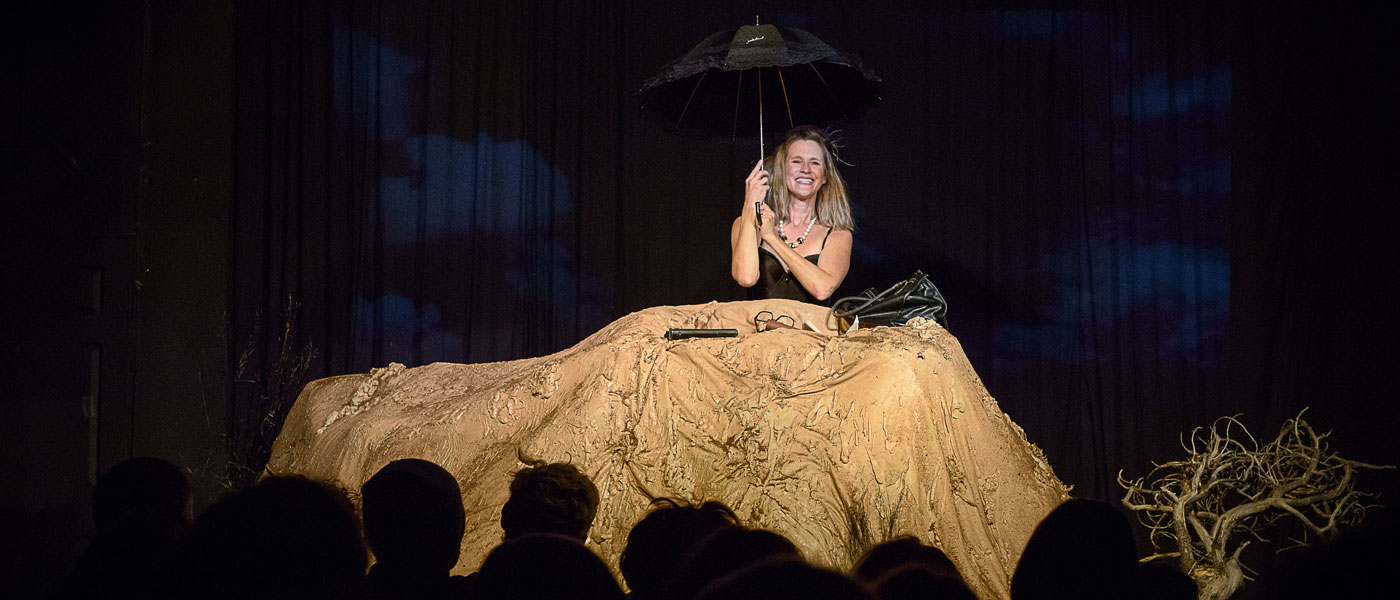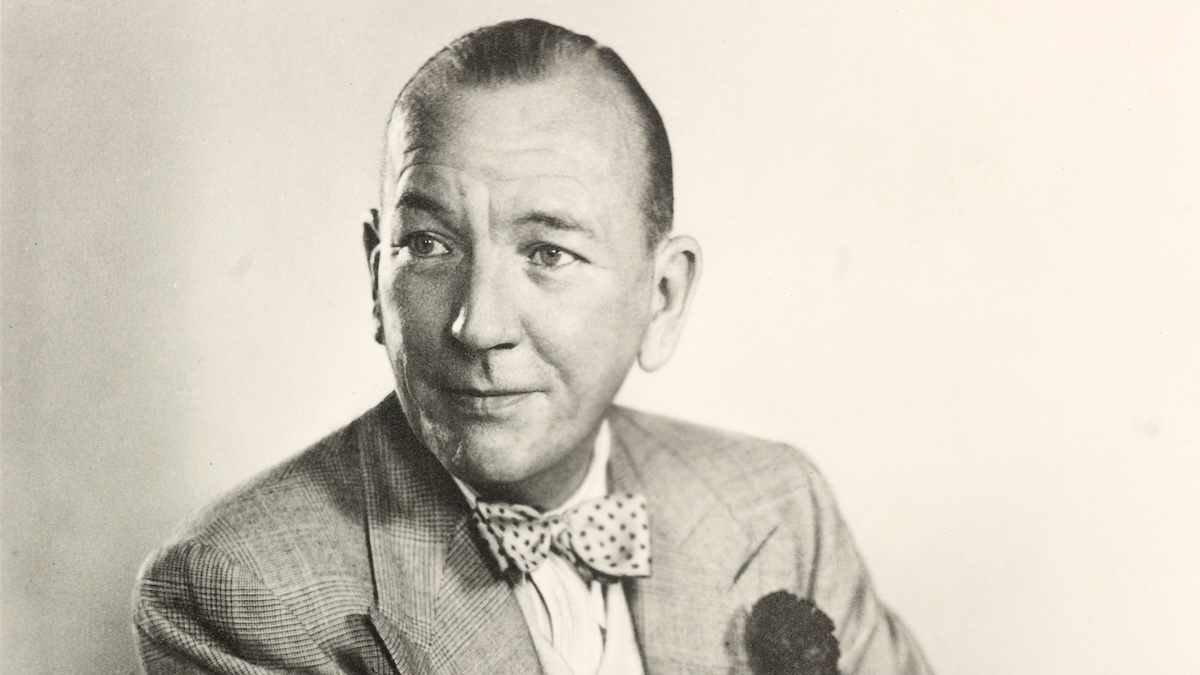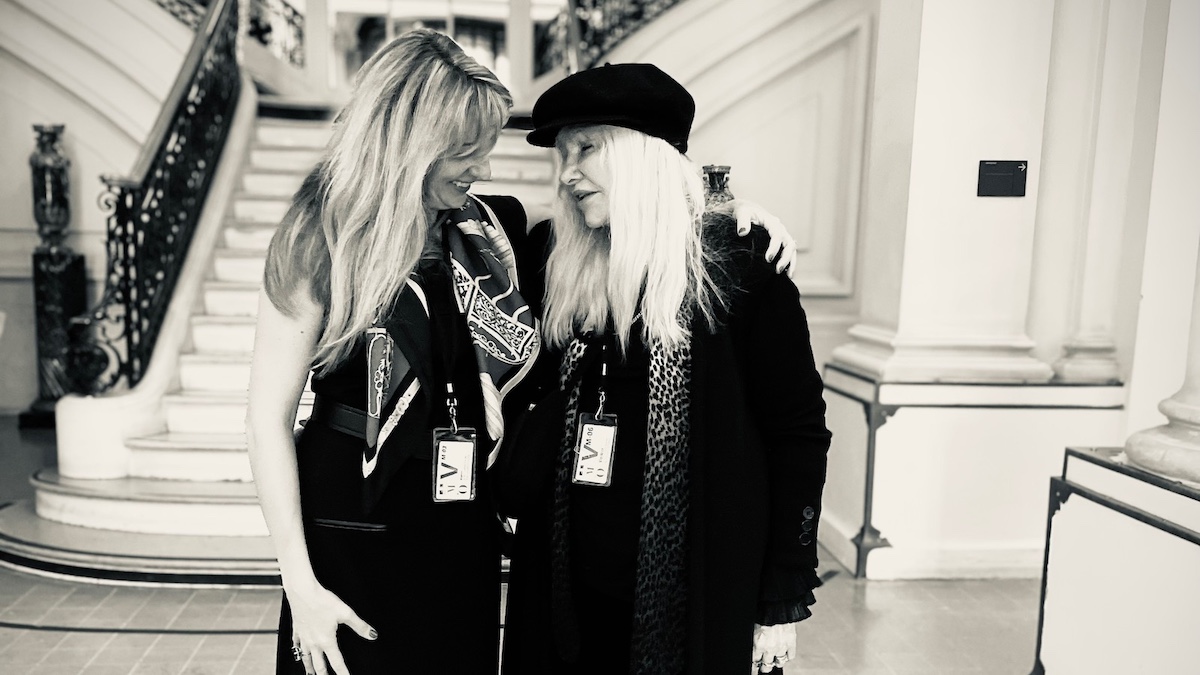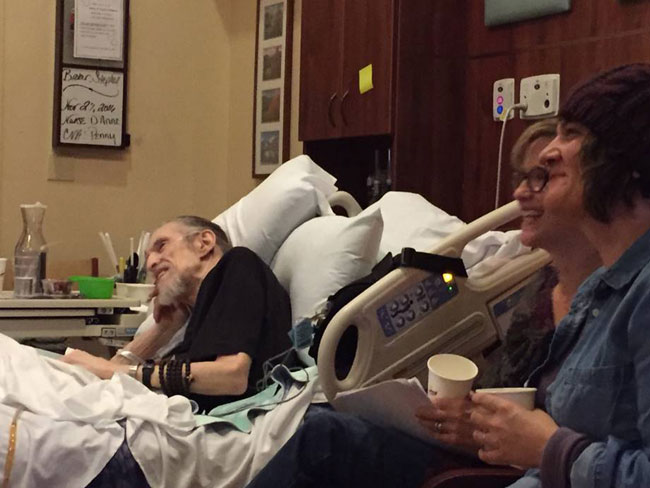
He moved into my heart and the apartment above my garage the fall of my freshman year: the time of Kool Aid in bathtubs, flow charts in magazines, and fire in dollhouses.
Stephen Broker spent five years reading Buddhist texts and play reviews, and watching from a distance, and suddenly it hit him what Trimpah said about Colorado. He had been wondering where would be an ideal place to die and he was sick and tired of Kansas. And he hadn’t seen my mom for an incredibly long time, a lady who he knew from those sticky and sonorous years spent in New York in the late ’80s. Then it kind of turned into: “I think I’ll move there.” Somewhere in there, he got packed. He had lots of shit. A whole pile of shit that hit the Wendy’s sign on 64th and Sheridan. A whole pile of shit that left Stephen stuck under the sign at said Wendy’s. My dad had to go pick him and his U-Haul up, filled with CDs, plays and goodbyes. Wendy’s has never seen so much culture.
He brought it up the moment he got out of his U-Haul. He was smoking a cigarette and wearing his maroon fleece and he turned to my mom and said: “Ellen, let’s do a play.”
He spent the next two years scoffing, cackling and hating on Tom Cruise, another story aching to be told, shushed and told louder. The wounds on his knees grew bigger and his spine slowly gave up. His fake teeth no longer fit in his mouth, falling from his gums as his big voice still boomed, but as his face grew longer and his days shorter. I only saw him cry once.
Stephen Broker
He moved in with a love for Geraldine Page, Ellen Burstyn, Isabelle Huppert and then a love for me. Here we found a congregation of forgiveness and lyricism, the stickiness of Creamsicles, a currency of great plays, and a dependence on the kindness of strangers. A congregation where I believed and believe in a man who can cheat mortality as easily as if it were Candyland.
And then it seemed like the end. My mom came (as she always did most afternoons, sometimes with raspberries and cream) and talked to him, and asked if he needed anything. And he said, “The one regret I have is that we didn’t get to do a play.”
And then the Rinpoche came and talked to him and he got wind in his big, colorful sails and he remembered what he wanted when he was close to death. That was when he sat down in his second apartment, the one that became a shrine of nicotine patches, grief, candy wrappers, library books he never returned, his bitch of a cat, Billy Holiday’s voice, and crafted the application for Dream Foundation.
Three years after proclaiming his intention, Stephen put on his play. A lover of language and the tangibility, inconsistency, and magic of the theatre, he chose Samuel Beckett’s Happy Days. He returned to one of the few cultures on this planet that consistently smells like Pond’s Cold Cream and Swedish Fish, and giving with a play only he has the guts to make real. He described this process as a “serendipitous crash of the universe.” With only two acts, two primary characters and simple stagecraft, Happy Days speaks to how we humans deal when time is running out. Our rituals, our relationships, our reasoning. Critic Howard Taubman describes the script: “Mr. Beckett’s threnody is grim, but in its muted, tremulous way it shimmers with beauty. For he has refined his theatre into something that parallels the elusiveness and overtones of music. His writing is spare and allusive, wry and grave, direct and poetic. He dispenses with the commonplaces of plot and action; nevertheless, he arrives at an emotional essence.”
Every day, Stephen woke up and got to do what he does best. He got to formulate how he would send those cowards screaming from the theatre and audiences to their feet in roaring applause. How he would tell the story of what it was like to live in an in-between, to wait, wonder and drown. How he would be obligated to the universes he created in his head and the universe he created everyday with my mother as Winnie amidst the little yellow bottles, Popsicle sticks, and books about books. He got to “embark on the marvelous detective story of the human spirit.”
I imagine what used to be six feet and a quarter inches of him sitting in a lawn chair outside of the Prometheus Theatre at 10 a.m. with a flask, a donut and a book, cynical, brazen and sure, maybe a little bit of a diva.
I spent a long time wondering how geniuses end up in a seventh floor apartment of Francis Heights with a rotting door jam, an HBO subscription, and tuna fish, sad as Sunday night television. How Stephen’s God, or the God I imagine, could have abandoned him here with spider legs, fear and tomatoes.
Watch party from Stephen’s room.
But here, in this work, in this sense of purpose, understanding, storytelling and the weight of a community behind him, Stephen’s God didn’t abandon him. He gave him the abandon only seven or 100-year-olds have: to be free. To be curious, vast, plucky, guttural and kind. To be the person you sit with at the table hours after the check is paid. To be the first in the water every time.
Happy Days played for two nights. Stephen was unable to be there. But Stephen’s community stepped up to the challenge, the challenge of understanding this world created inside a dirt mound. His story depended on a bulbous handbag and a magnifying glass and my mother, a woman colored by a salivating hunger for truth, womanhood, time and ravaged beauty. Whose moments of insanity project a clarity that cuts like a knife. One of my best friends, whose laugh had rung through the small Denver theatre and whose cheeks were still stained with tears, asked me afterwards: “Was I supposed to understand that?” But she had. With the help of Julie Rada as production/everything support, Cindy Hass as lover of thrift stores, Chris Wamsley with a fervor for plaster and blow torches, Lia Presnell as social worker/lover of Stephen, and Mark Gauthier (my dad) as a plucky Willie, he had created a feeling. Specific and elusive and colorful. These were his happy days.
Stephen’s final Dream was brought to life with the help of the only national dream-granting organization for terminally-ill adults, Dream Foundation. Since its inception in 1994, the organization has never turned down a qualified applicant. Working closely with Stephen’s dedicated team from The Denver Hospice, his friends, and the community at large, Dream Foundation secured a local venue, The Bakery, and assisted with costs associated with the play.
Dream Foundation believes that everyone deserves to have their final days filled with inspiration, comfort and closure. Stephen was no exception.
Dream Foundation serves terminally-ill adults and their families by providing end-of-life Dreams that offer inspiration, comfort and closure. Over the past two decades, our Dreams have provided psychosocial and emotional support tailored to more than 25,000 terminally-ill adults and their families.
The only national dream-granting organization, Dream Foundation’s Dreams touch lives, meet essential needs, reunite families, and play a critical role in the special end-of-life care that focuses on improving quality of life for Dreamers and their families. Dreams can be as simple as paying a heating bill to relieve financial stress, creating happy memories, meeting a personal hero — any request that provides support and compassion.
We have built a nationwide community of hundreds of volunteers, hospices, health care organizations, committed individuals and corporate donors that support compassionate care for terminally-ill adults. Each year, they help us give life to 2,500 Dreams nationwide.
Dreamers are at least 18-years-old, have a life expectancy of one year or less, and lack the resources to achieve their Dreams on their own. Dream Foundation does not receive any federal or state funding and relies solely on individual donations and corporate partnerships to fund its programs. For more information, please visit DreamFoundation.org.

Noël Coward’s Travels

Kate Chopin in New Orleans: Mother-Daughter Author Duo Collaborate on Historical Book



